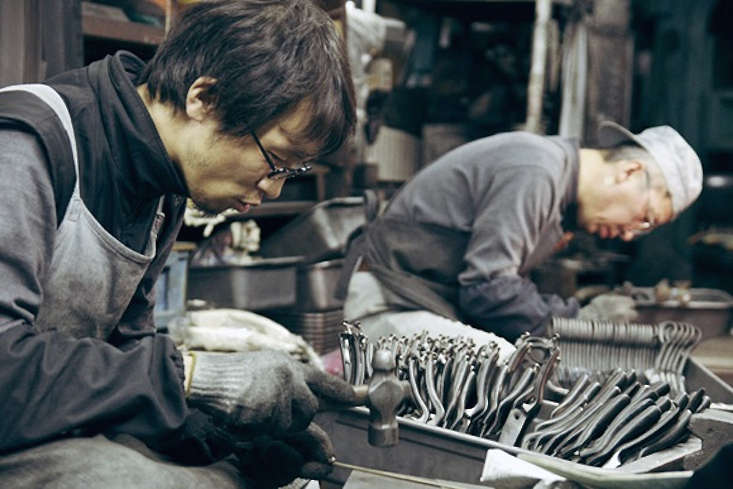Garden tool or work of art? Both, we think.
At Tajika Haruo Ironworks in northeast Japan, father and son Takeo and Daisuke Tajika carry on a family tradition (dating to 1928) by forging, shaping, and sharpening each pair of garden clippers by hand.
Above: A hand-forged pair of iron Garden Clippers is $136.72 from Analogue Life. Tajika Garden Clippers also are available for $145 per pair from Nalata Nalata.
Above: Father and son work side by side in their factory in Ono. Photograph via Natasalata.
Above: A leather strap holds the handles together for secure storage.
Above: Hand-sharpened blades are made of steel. “When I’m asked why we don’t mechanize our processes, I always explain how when manufacturing by hand it’s possible to finely tune the work in a way that a machine can’t do,” Daisuke Tajika recently told Nalata Nalata.


















Have a Question or Comment About This Post?
Join the conversation (0)